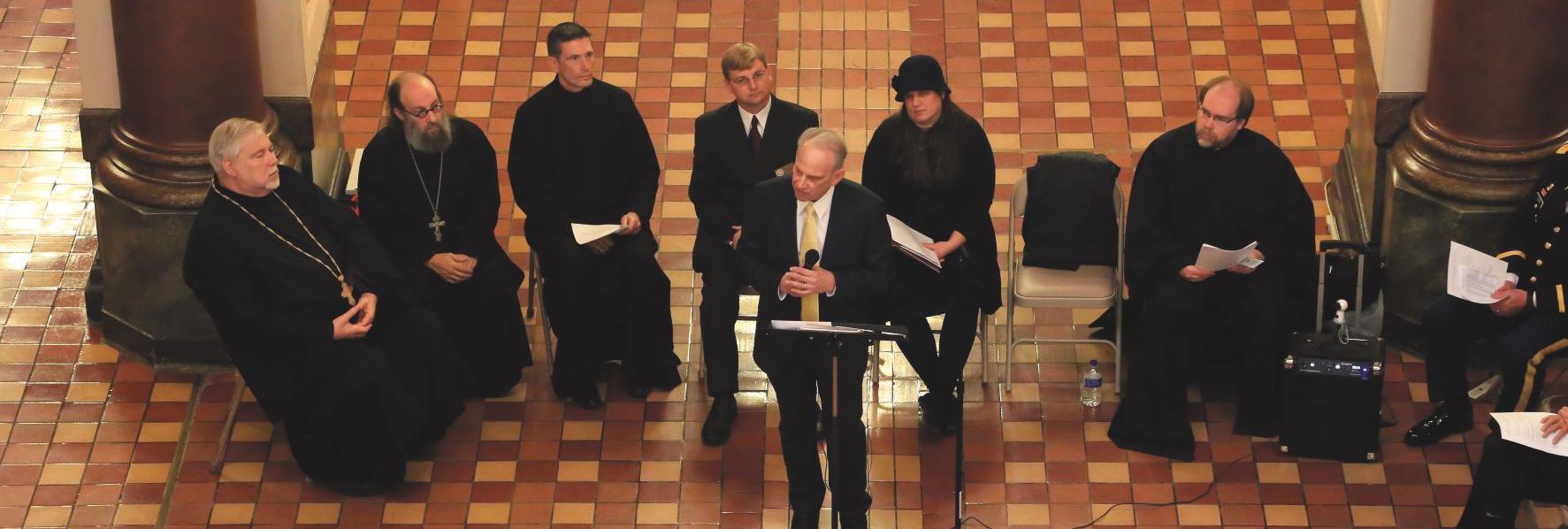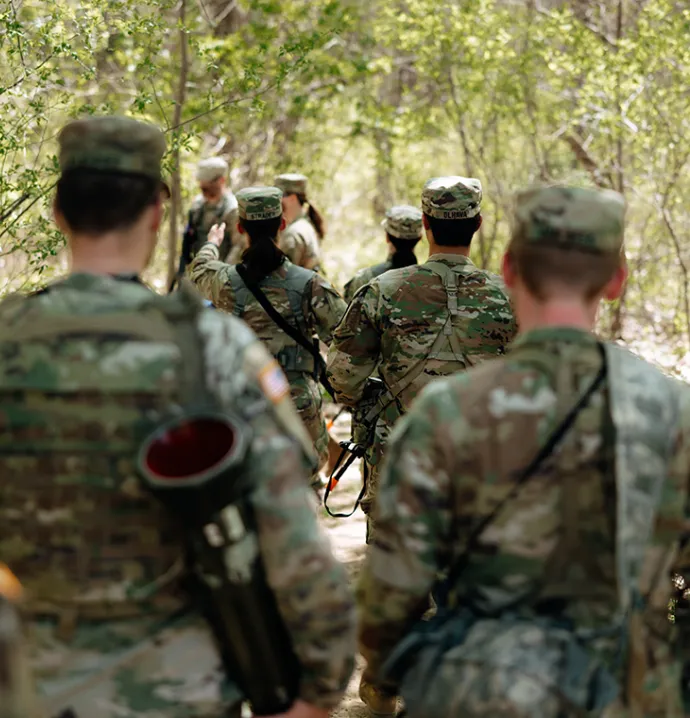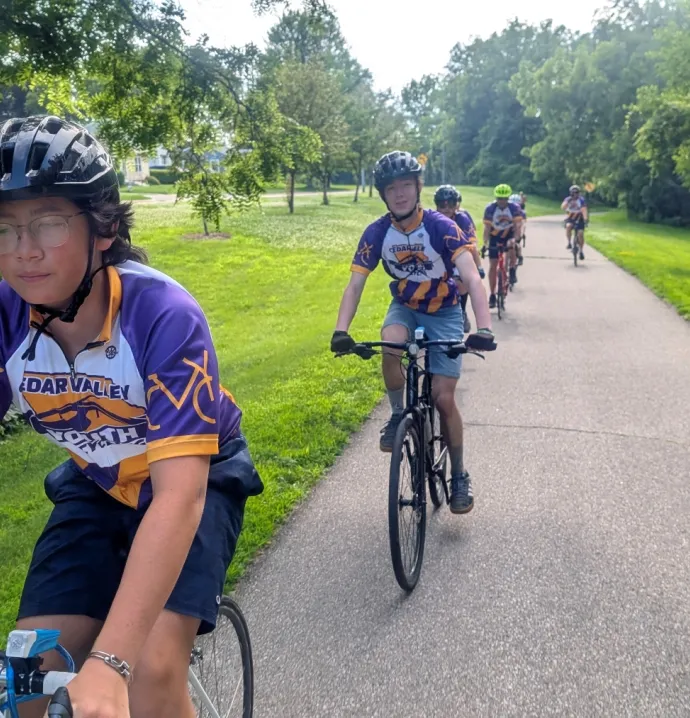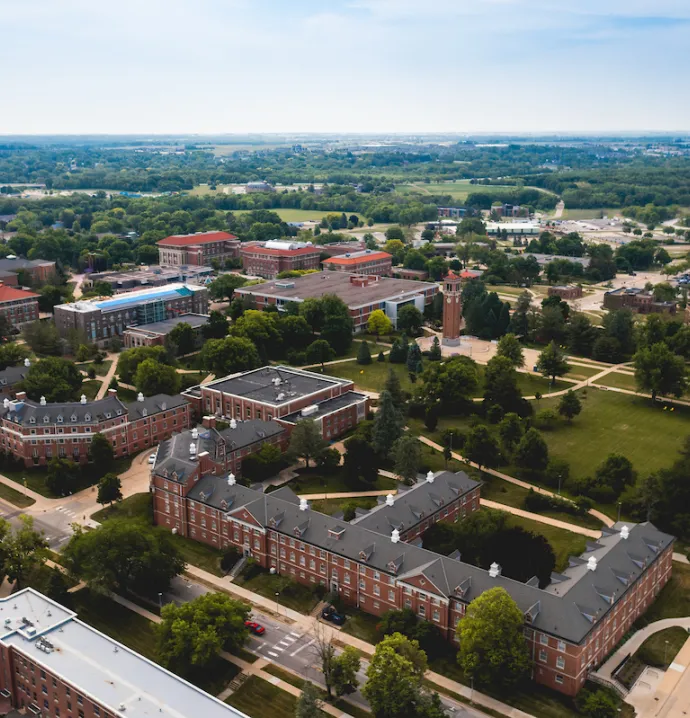UNI’s Center for Holocaust and Genocide Education is the only center of its kind in Iowa
UNI’s Center for Holocaust and Genocide Education is the only center of its kind in Iowa
Since 2005, Jan. 27 has been recognized by the United Nations as International Holocaust Remembrance Day. The date aligns with the anniversary of the liberation of Auschwitz-Birkenau, one of the most infamous concentration camps of the Holocaust.
“We try to encourage people to not just remember the victims of the Holocaust, but to also think about what we can do for people who are alive and among us today,” said Stephen Gaies, the director of UNI’s Center for Holocaust and Genocide Education (CHGE), the only center of its kind in Iowa. “Think about what you can do, right here at home, on behalf of people who are different from you in some ways but very much like you in most of the ways that matter.”
While people may ask why UNI has such a center when the Jewish population in Iowa is small, Gaies said the answer is simple: this type of education is for everyone. “Anywhere is a good place for people to learn about the Holocaust, just as anywhere is a good place to learn about racism and other kinds of discrimination and bigotry.”
The history of the Center for Holocaust and Genocide Education can trace its origins back to the mid-2000s when Dean Reinhold Bubser of the UNI College of Humanities and Fine Arts — the predecessor to the College of Humanities, Arts & Sciences — had the idea of creating programming related to the Holocaust. A committee of faculty and staff from across campus, which included Gaies, decided to have three semesters of programming such as lectures, film series, concerts and art exhibits starting in the fall of 2006.
“The response to these events was so positive — it was bringing people from the local community onto campus and encouraging students to take Holocaust related courses — that we decided to continue the work of this committee indefinitely,” Gaies explained.
In September 2011, the UNI administration formally approved the creation of the Center for Holocaust and Genocide Education. “Along the way, we decided that we didn’t want to limit our focus to the Holocaust but to expand to other genocides and other human rights issues,” said Gaies.
The center is a member of the Conference of Holocaust Education Centers at the United States Holocaust Memorial Museum. Through this close connection with the center, Gaies said the museum has provided a number of speakers for the center’s programming over the years.
This year, the CHGE will recognize International Holocaust Remembrance Day with an online presentation from Sol Nayman, a Holocaust survivor and educator. The presentation is free and open to the public.
Gaies is quick to point out there are multiple days to remember the genocide known as the Holocaust in which six million European Jews were killed. There is also a Holocaust Remembrance Day in the spring established by the state of Israel in the 1950s to mark the anniversary of the Warsaw Ghetto Uprising. In 1980, Congress unanimously passed legislation that created a week of Holocaust remembrance known as the Days of Remembrance.
“The Holocaust is very powerful in the way that it remains in people’s attention,” Gaies said. “For roughly 35 years after the end of World War II, with the exception of the ‘Diary of Anne Frank’ and a couple other things, the Holocaust was not really on people’s radar. Holocaust survivors who came to this country or elsewhere were discouraged from talking about their experiences. They were told what happened was over, and they had to build new lives.”
Unlike some others, Gaies isn’t concerned about the Holocaust being forgotten as its survivors pass away.
“We have around the world hundreds of thousands of audio and video testimonies of Holocaust survivors, which are extremely powerful,” he said. “This is something we don’t have for most historical events.”
Gaies has led the Center for Holocaust and Genocide Education since its beginning. He was a professor in the Department of Languages & Literatures before transitioning to teaching courses about the Holocaust and genocide. He retired from teaching at UNI at the end of 2019, but has stayed on as the center’s director. He is grateful to have always had the support of his dean, starting with Bubser, continuing with Joel Haack and now John Fritch.

“The things we do aren't limited to the campus or even to the local community,” he said. “We’ve really tried to have a footprint around the state.”
The pandemic has caused the center to rethink the way they do a lot of their programming, causing a shift to online lectures and the digitization of exhibits. While the way the center works may change, the need for it remains.
“The need for this kind of center is even greater now than when it was first created,” said Gaies. “The rise of hate crimes, the polarized society that we have here and in other countries, the incredible rise in antisemitic rhetoric and racism — all of these are part of our mission statement because they’re all connected.”
Through the center, Gaies has seen he isn’t alone in his quest for knowledge on the subject.
“One of the things I've learned is there's really a tremendous interest in the Holocaust, not only among people who have some connection to it but also people who really don't have any connection to it,” he said. “The response to the center really surpassed any expectations I might have had, and that's been very gratifying.”




